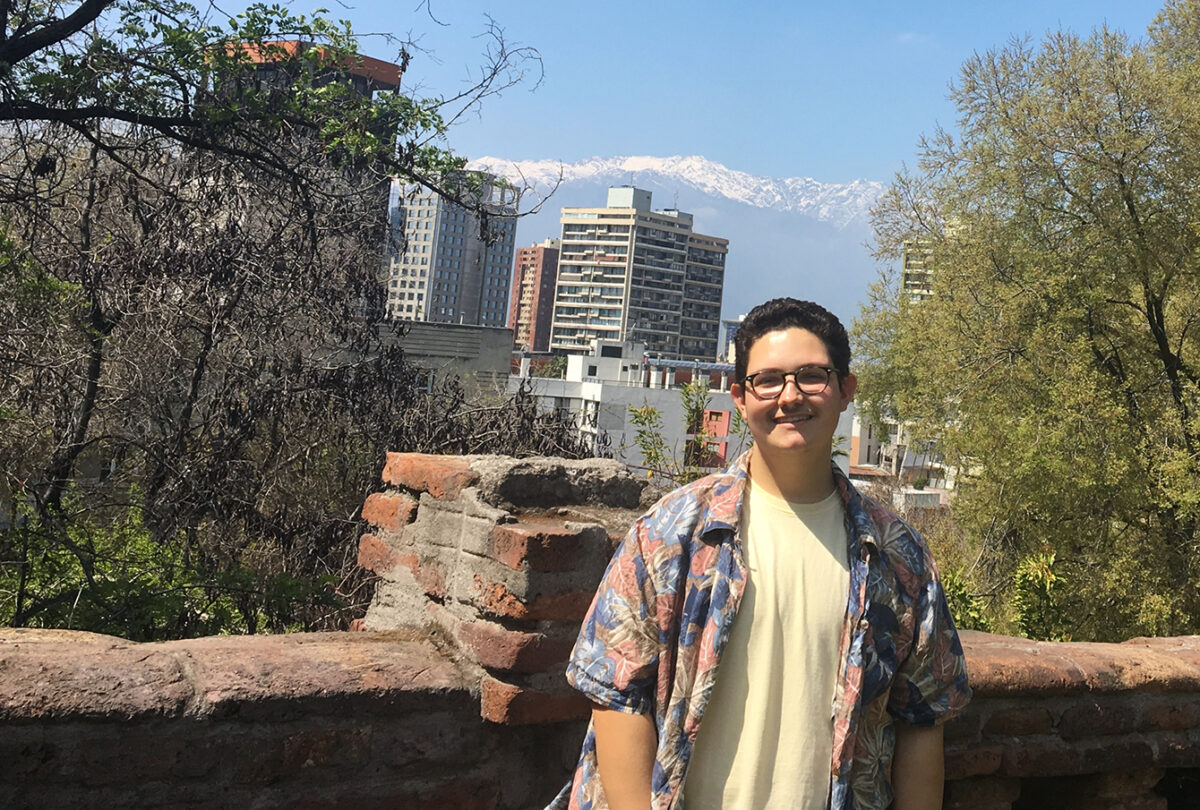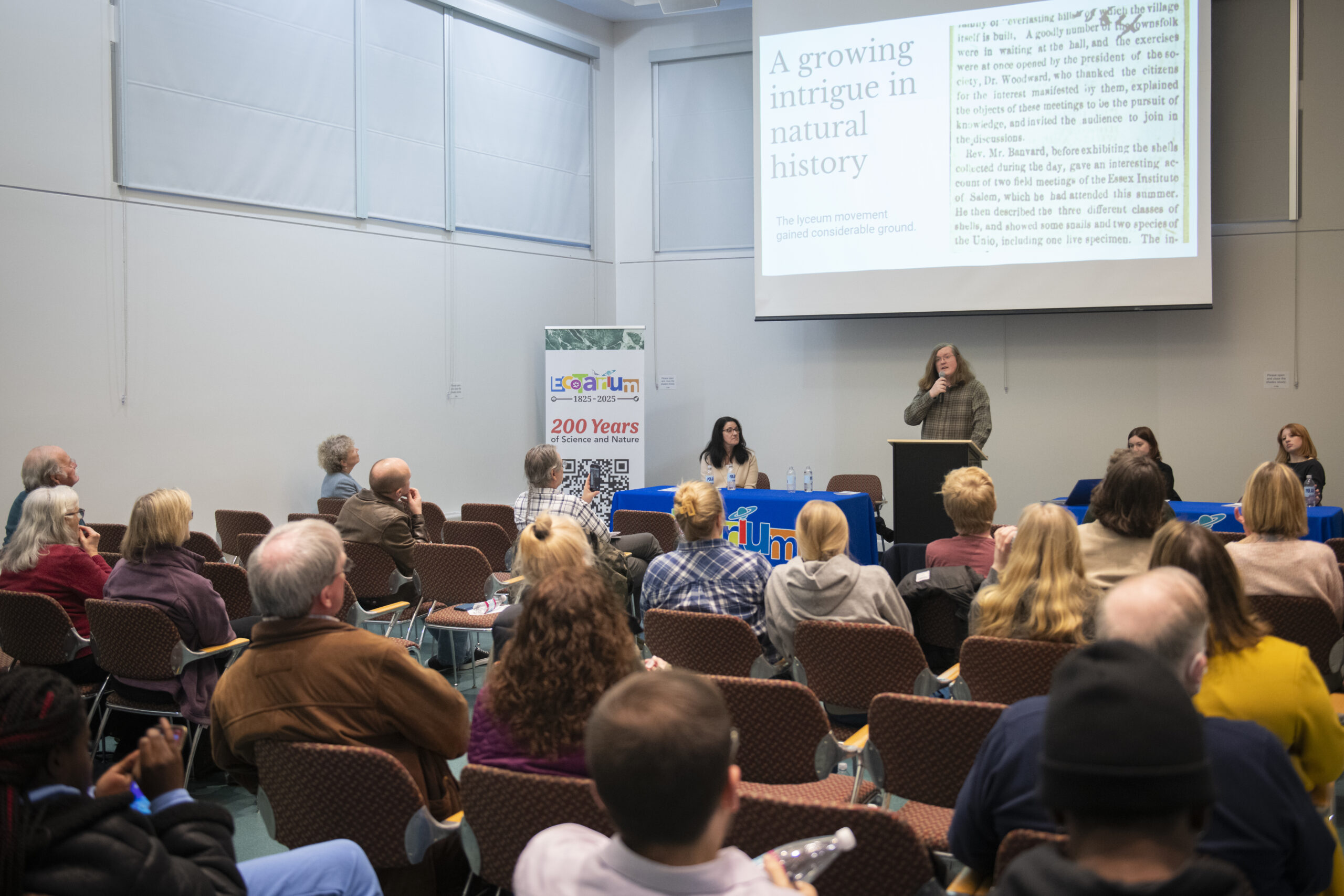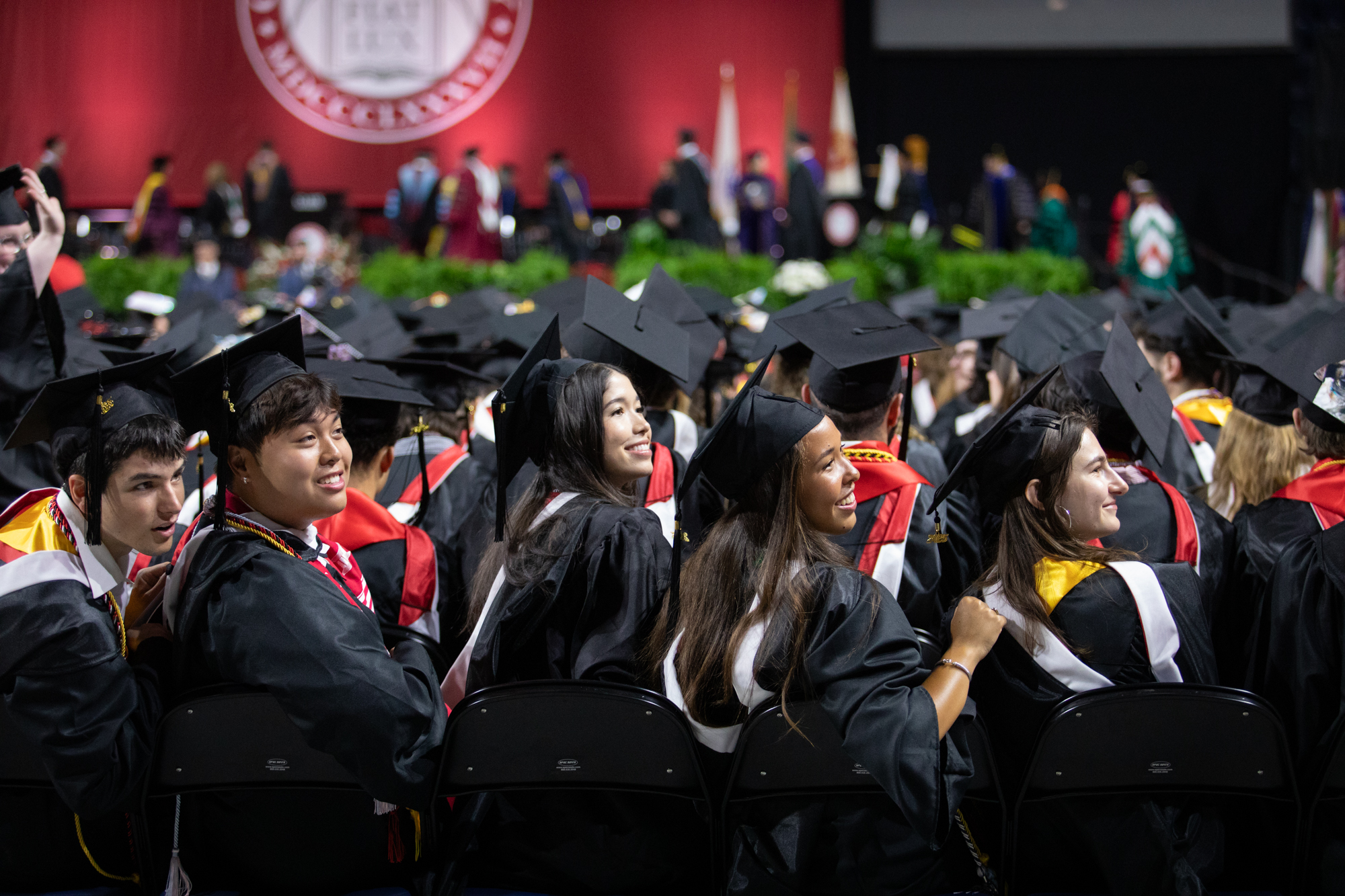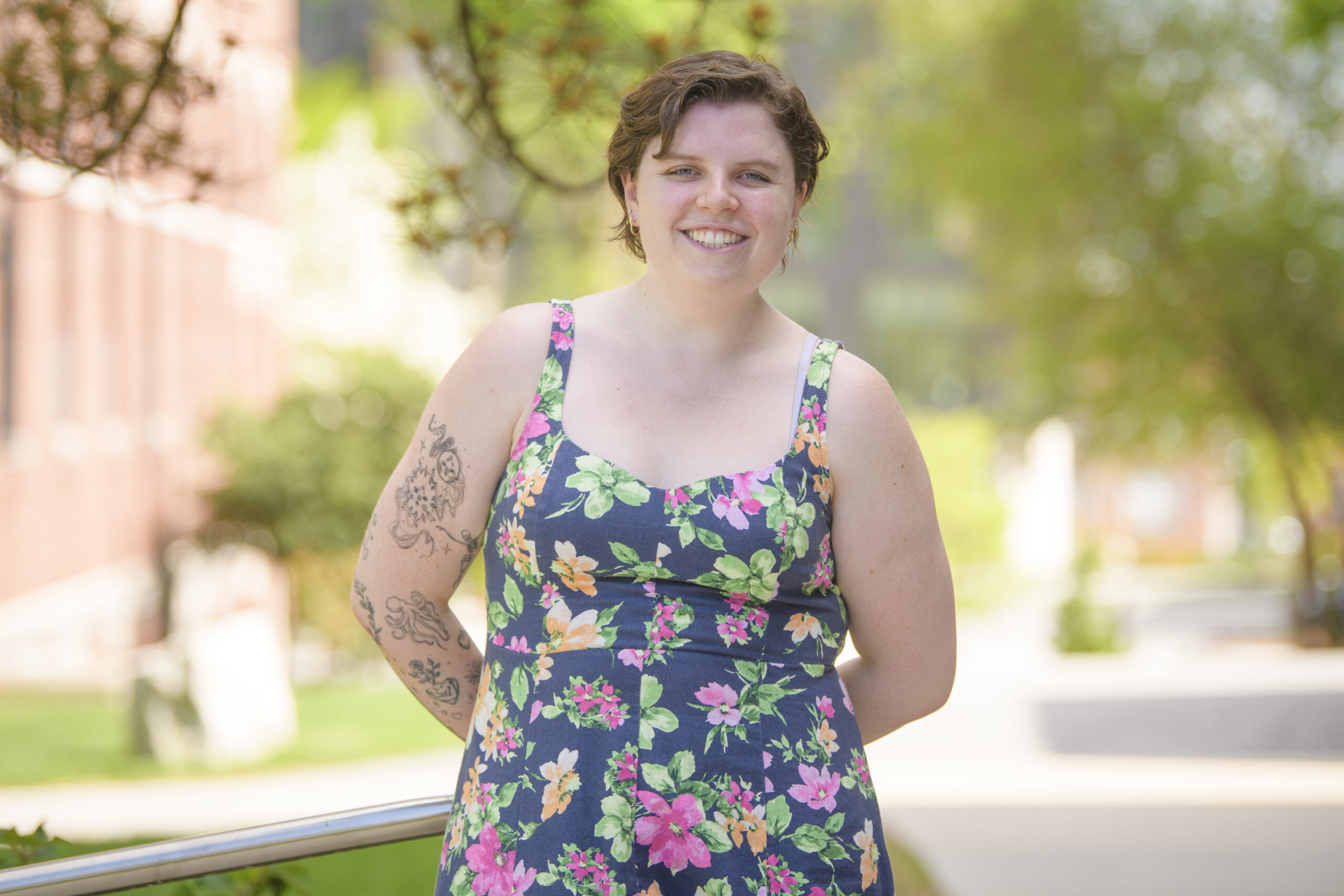Steinbrecher Fellow examines food insecurity issues in Santiago
Max De Faria ’20, a double-major in geography and Spanish and minor in political science, is cooking up a plan to change agriculture and food policy by creating a more sustainable and just food system, both locally and globally.
De Faria, of Pawtucket, Rhode Island, has worked with local and international food justice organizations, drawing upon the classroom experiences and mentorship he has found at Clark. Funded by Clark’s prestigious Steinbrecher Fellowship and the U.S. State Department’s Benjamin A. Gilman International Scholarship, he’s conducting research and studying abroad in Chile.
At Clark, he’s been involved with Food Truth, a student organization, and worked for two years as a student assistant for Mosakowski Institute for Public Enterprise, providing support for the annual Family Impact Seminar at the State House and analyzing data on the institute’s Working Cities project.
Below, we asked De Faria about his experience at Clark so far.
Describe your current project in Chile.
I am conducting research on urban food insecurity and the effect of government policy in Santiago. I am researching food insecurity across different neighborhoods of the city using socio-economic data, as well as information available regarding grocery stores, farmers markets, and urban agriculture. Once I understand food insecurity throughout the city, I then will research what steps the government is taking to address this issue.
How might this experience help you with your post-college goals?
The research I am conducting will provide me with the opportunity to understand the relationship between reality and policy. Professionally, I hope to work in and around government policy to address issues related to food and agriculture, in order to promote a more sustainable and just world. This experience will allow me to combine my interest in understanding what the public is facing, with research into how the government is seeking to address it.
What other experiences have you pursued at Clark?
During my time at Clark, I have interned with Clean Water Action (CWA)’s Massachusetts chapter; Food Tank: The Think Tank for Food; and Farm Fresh RI (Rhode Island).
At CWA, I served as the environmental health and justice intern, evaluating policies and drafting testimony regarding environmental hazards and disparities in Massachusetts.
As a research and communications intern with Food Tank, I interviewed members of the food movement and wrote several articles about their roles in creating sustainable food systems.
Finally, as a nutrition education intern this past summer with Farm Fresh RI, I educated children ages 5 to 12 on healthy foods. I also provided administrative support by registering families with a Farm Fresh RI program called Healthy Food, Healthy Families, which provided financial support to families with WIC or SNAP to purchase fruits and vegetables at the farmers market.
How has your time at Clark prepared you for such experiences?
My time at Clark has prepared me for my research and my study abroad experience through the cultivation of my interests, support, both academically and personally, from advisers and mentors within the community, and encouragement, logistically and mentally. A year abroad is challenging both academically and mentally, and yet my professors and mentors at Clark never wavered from their commitments to help me see it through. From planning my research to organizing my courses for the year and providing me with scholarship and grant information, Clark has ensured that I was as prepared as I could be to take on this year of learning and growing.
Why did you choose Clark?
After the first moment I stepped on campus during a tour my junior year of high school, I knew I belonged. I had never felt more comfortable or at home on campus before then, and after several other visits, I knew I never would. Clark made me feel like my interests and passions were worth pursuing, and the people I meet on campus every single day validate my choice, reminding me that I am exactly where I belong.
What do you like best about being a student here?
I like that being a student at Clark doesn’t entail certain expectations. You can be yourself and express your interests without being questioned in a negative sense. I’m studying food, agriculture, politics, and foreign languages because being at Clark means that I can learn about my passions. It also means that the likelihood that someone else has an equally as interesting combination as mine is incredibly high, and we have the opportunity to learn from each other.
Why did you choose your majors and minor?
I chose my majors and minor due to their flexibility. My advisers have supported me in creating my majors and minor to suit my future academic and career endeavors. Moreover, the combination I have chosen has allowed me to focus on my interests in an interdisciplinary context and to learn more about how all of the issues I care about are connected.
What do you like best about studying your major?
I love majoring in geography at Clark because I can tailor the major to what I am interested in and what I want to know more about. I can take a class on how climate change affects the Arctic, while at the same time learning about food systems and movements around the globe. Moreover, as a geography major, I am approaching everything in a very interdisciplinary sense in the same manner that the world works.
Can you describe a memorable learning moment at Clark?
The most memorable learning moment I have had at Clark came during my Research Methods course for geography. When I was discussing with Padini Nirmal — my professor for GEOG101, Food Justice and Food Movements — the research proposal I was drafting for the research methods course regarding indigenous food access in New England, she went above and beyond to provide me with links and suggest reading recommendations and scholarly articles. She not only taught me what she knew, but she went above and beyond to make sure that I was aware of how much there still was to learn. She truly encouraged me to continue in my interests and to dedicate myself to this particular academic route.
What do you think makes your major at Clark unique from other colleges or universities?
I believe Clark is the only university that would have allowed me to continually merge all of my interests. My advisers work with me to make sure that my double major and minor is not only do-able but also fulfilling for me as a student. I am able to combine my interests and learn about what matters to me because Clark makes it possible and provides me with the support system to do so.
How have your faculty advisers helped you?
For my geography major, my adviser is Rinku Roy Chowdhury. For my Spanish major, my adviser is Juan Pablo Rivera, and my political science minor is advised by Paul Posner. Each of these individuals has worked with and supported me in tremendous ways, both in this year abroad and my research. Professor Roy Chowdhury is my faculty mentor for my Steinbrecher research, while Professor Posner has experience with the political aspect of my research. Moreover, Professor Rivera encouraged me to find the other advisers I currently have. After my first class with him during the first semester of my first year of college, he not only supported my interest in foreign languages, but also encouraged my efforts to bridge the gaps I saw between my own interests and the majors to make for a fulfilling experience.
How has your time at Clark helped prepare you for your next endeavor?
My professors have supported my aspirations through continued guidance and advice. They have provided me with information to make the best decisions for my academic career and have encouraged me in all of my goals, from studying abroad for a year to conducting research during my time abroad. Moreover, the Study Abroad Office provided me with the knowledge to make this experience a reality. Without their combined efforts, I would not be here in Santiago, Chile, learning more about the world, myself, and food.





